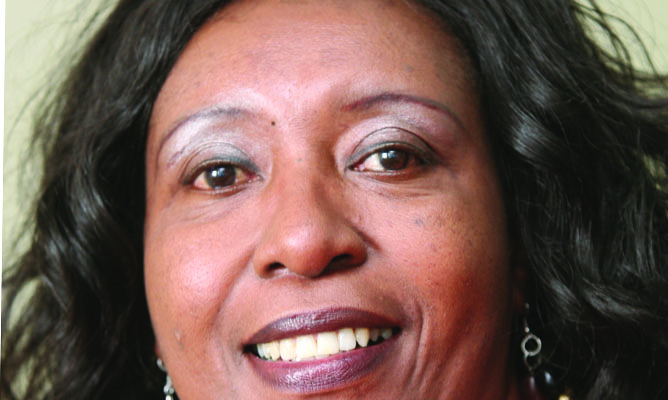
I ALWAYS wonder why we fail to celebrate success of our own people and yet spend loads of money trying to watch foreign bands, or even international soccer stars, when we actually have our own local heroes and superstars who are doing wonders in our communities.
These people are often discouraged by our attitudes towards their successes or innovations, but they immediately become famous the moment they step in foreign lands.
One case in point is that of Pastor Israel Muzari, a Zimbabwean based in Australia, who discovered the “Wonder Herb”, which has proven to bring relief to people living with HIV, arthritis and even cancers.
When I broke news of this story earlier in the year, there were people that posted nasty comments about the article, with some suggesting that I could have been paid for writing that story.
This PHD (pull him/her down) Syndrome is what has destroyed people’s careers in politics and even marriages because we have failed to celebrate the tiniest of successes in our people.

Recently, a Zimbabwean made history in England and earned himself a PhD in the process after completing clinical trials into the use of granulated sugar for treating wounds.
He is Dr Moses Murandu, a senior lecturer in adult nursing at the Birmingham University’s School of Health.
- Chamisa under fire over US$120K donation
- Mavhunga puts DeMbare into Chibuku quarterfinals
- Pension funds bet on Cabora Bassa oilfields
- Councils defy govt fire tender directive
Keep Reading
It is a treatment plan that is met with disbelief from patients and medical practitioners alike, he said, but it is one his family had used since he was a child.
Growing up in Zimbabwe, Murandu’s father, Aron Majazi Munawa, often used cane sugar to treat their wounds.
One patient, who was due to have an amputation, was saved after administration of the sugar treatment, which could save the United Kingdom’s National Health Service billions of pounds. He believes in its potential use in the health system so much he spent between £15 000 and £18 000 of his own money on the research, and was awarded the prestigious Fondation Le Lous Scientific Research Innovation Award.
“All I want to do is get people to know about it, to use sugar to help people.
“I have learned from the English and they have learned from me. I want us to work together to help developing countries as well as here. Wounds are something that people don’t actually bother about – they talk about cancer and diabetes, hypertension, but decaying wounds are a big problem going unnoticed,” the BBC quotes him.
As well as being an effective way to treat wounds, it is also cheap – an important factor Murandu knows will benefit those in poorer countries.
BBC interviewed Linda Lang, Dean of the Faculty of Education, Health and Well-Being, who said: “Moses is truly inspirational and we are extremely proud of his achievements. His research is making a significant impact and a very real difference to patients’ health and well-being.
Just like Muzari, the “Wonder Herb” will soon undergo trials with a local institute and this will no doubt be another major breakthrough by another Zimbabwean.
Muzari, who is a minister with the Family of God Church, is, however, not a medical practitioner, but a retired banker, who says he the idea when he was seated in his garden at his home in Chinhoyi a few years ago.
The herb, which has been now been packaged into capsules, is taken for three months without a break and Muzari says he is confident it brings relief to patients and says that all people that have taken these capsules can attest to this.
Right now, there is a flood of herbs from China, Malaysia and South Korea that most Zimbabweans have bought into, yet we have so many herbalists offering more or less similar stuff.
I once mentioned, in an earlier article, that Mashonaland Central is rich with people who have knowledge about fighting cancer, but we choose to spend thousands of dollars undergoing chemotherapy, which sometimes does more harm to our bodies, I think.
Why cant we just be more supportive? The urge to tear down a friend’s success is as old as the very first siblings Cain and Abel as these two show how they responded to one another’s success — one healthy and the other totally destructive. We can chose to be Abel or to be Cain.
For people in the working world, there is more anxiety now than in recent memory. People are changing jobs, losing jobs, looking for jobs and trying to hang onto jobs they already have. One would hope that almost any job success would bring cheers from friends, colleagues and even family, but all too often it turns out quite the opposite.
Generally speaking, comments about people who have made strides in their areas of expertise receive negative comments and sometimes they have to leave Zimbabwe to be recognised elsewhere.
Nyaradzo Mashayamombe, director of TaLI, recently posted on Facebook that she was humbly surprised when BBC Africa News Service called to interview her on her latest album.
I remember the first time she walked into a newsroom with posters of that album when some journalists complained she was advertising herself before they had listened to her music.
But that album has no doubt received recognition from a reputable news organisation and what does that say about us?
Her album has good songs and a rich African beat, which can easily win an award like what happened to Ancient Voices, which was recorded by the late mbira maestro Chiwoniso Maraire.
I have no doubt that Zimbabwe is headed for greater innovations and recognition on the global stage.
But this can only be possible if we all support innovations by our citizens from various disciplines including the technological field.
●Feedback: [email protected]











